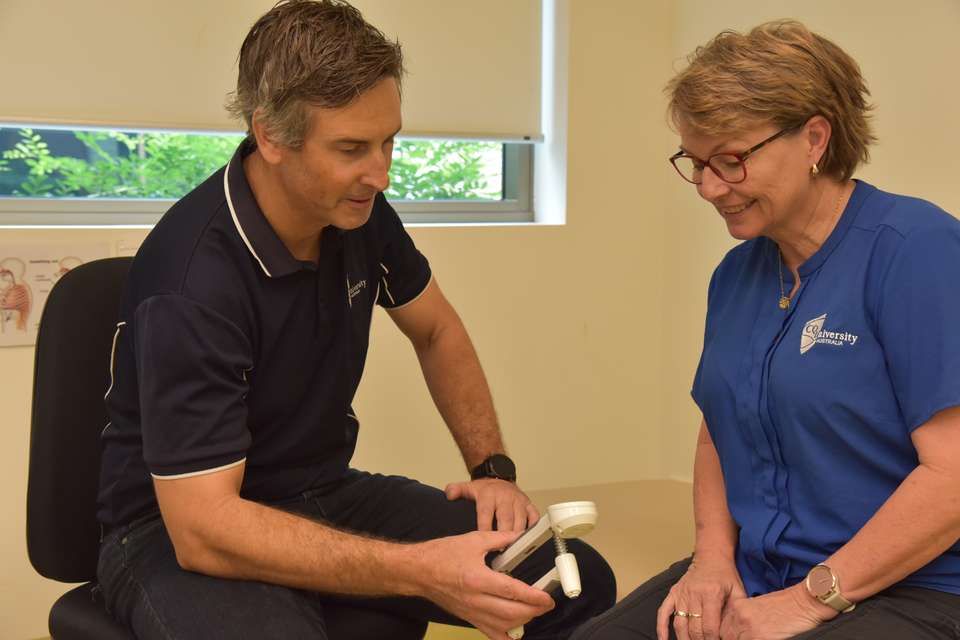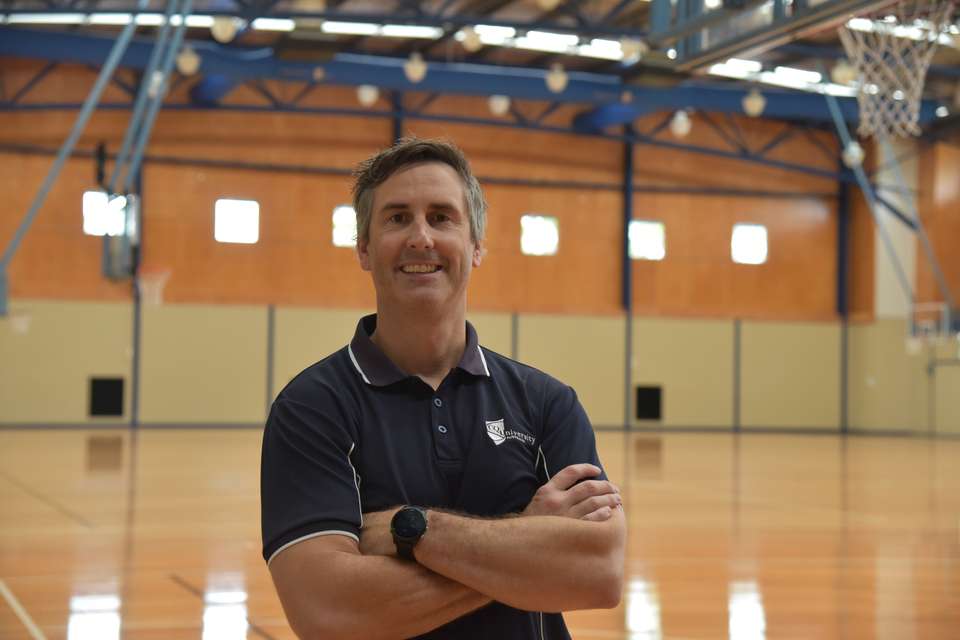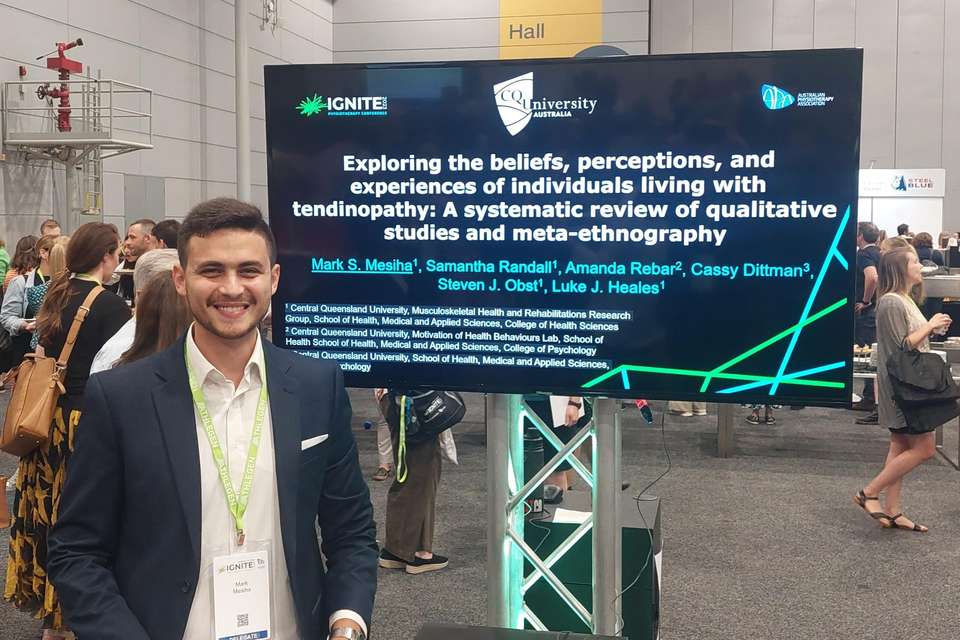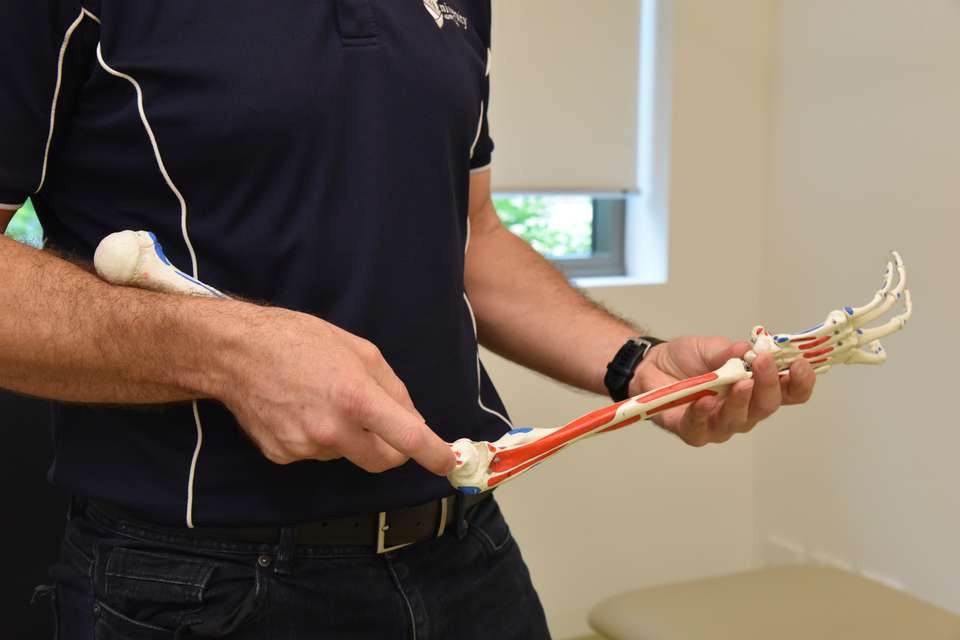Serving up solutions; tennis elbow research aims to ace patient perceptions and experiences

CQUniversity researchers are calling for participants to be part of a new study investigating the experiences of people living with pain on the outside of their elbow, commonly known as tennis elbow.
Typically caused by repetitive motions of the arm, and especially in activities that require gripping or swinging – like tennis – the condition is often associated with players of the sport, but can affect anyone engaged in repetitious arm movement.
Co-lead of CQUniversity’s Musculoskeletal Health and Rehabilitation Research Group, Dr Luke Heales said the study aimed to explore individuals’ understanding and experiences of tennis elbow over time, as so far little is understood from the patients’ perspective.
“The findings of the research will add to knowledge and practice about how to best support people with elbow pain,” Dr Heales said.
“We’ll be looking to understand individual experiences regarding the cause and management of participants’ elbow pain, whether professional help was sought, and any impacts the pain has had on participants’ lifestyle or wellbeing.”

Commencing his Doctor of Philosophy in 2022, CQUniversity PhD student Mark Mesiha has been exploring surrounding factors of tennis elbow – or lateral elbow tendinopathy – recently presenting at the Ignite Physiotherapy Conference where he explored the beliefs, perceptions and experiences of people with tendinopathy.
Involving two stages, the study will follow people for a period of six months to develop an in-depth understanding of the individual’s condition over time.
“In stage one, potential participants will work with registered a physiotherapist to undertake a physical examination as part of the initial assessment,” Mr Mesiha said.
“The physical examination will allow us to develop a comprehensive clinical picture, and the interviews will allow us to get a deeper understanding of the patients’ experience of living with this clinical condition.
“Given the often persistent nature of this condition, our aim is that with this research we will be able to better understand the potential psychosocial impact of tennis elbow on the patients’ quality of life over time.”

Conducted in Rockhampton, eligible participants need to be over 18 years of age, experiencing pain on the outside of the elbow for a minimum of six weeks and a maximum of six months following symptom development. Individuals fitting this description can complete a short online screening survey.
If eligible, individuals will be invited to undertake a short physical examination conducted by a registered physiotherapist to confirm eligibility to participate in the study, which will then be followed by three online interviews across the six-month period.
Physical examinations will be conducted at the CQUniversity Rockhampton North Campus, and individuals will be compensated for their time with a $100 gift voucher after the final interview.
For further information about the project, please contact Mr Mark Mesiha on 0489 140 551 or via email at m.mesiha@cqu.edu.au or Dr Luke Heales at l.heales@cqu.edu.au or (07) 4930 6763.
To find out more about Research Higher Degrees with CQUniversity, visit the RHD webpage.

